What young boy wouldn’t want a robot as a best friend? This very idea is the premise for Brad Bird’s amazing animated film The Iron Giant but the concept dates back to 1954 and a low-budget science-fiction flick called Tobor the Great, a film that pits nefarious individuals against an 11-year-old boy and his robot best pal, and if I were a betting man I’d put my money down on the kid with the large metal man.
Robots have been around long before science fiction was even a thing, in Greek mythology there was Talus, a giant automaton made of bronze created to protect Crete from pirates and invaders, then there was the legend of the golem, an artificial creature brought to life by Jewish mysticism, but the more common example of the robot dates back to a Russian play called R.U.R. (Rossum's Universal Robots) and though this is where the term “Robot” first appeared the robots in the play were more android than mechanical men, but from L Frank Baum’s Tik-Tok in the Oz books to Fritz Lang’s Maria from the silent classic Metropolis the idea of a constructed servant has never stopped being a key staple in mankind’s view of the future and in 1954 Republic Pictures put their own stamp on this iconic piece of science fiction with Tobor the Great.
Tobor, a robot of many talents.
The plot of Tobor the Great is a rather simplistic one, mostly due to the film’s rather low budget, and it dealt with a man named Arnold Nordstrom (Taylor Holmes) a professor who believes that manned space exploration is too dangerous and so an alternative is needed, so with the help of Dr. Ralph Harrison (Charles Drake), they embark on a research project to create a robot that could replace humans for space flight. What makes Tobor unique in the annals of science fiction robotics is he was created with synthetic emotions and was given some human capabilities, including the ability to "feel" emotions and react via a telepathic device built into his robotic brain. What is not made clear is why having emotions in a robot would make him a better candidate to undertake space travel. When Nordstrom and Harrison run a simulation of a meteor storm, with Tobor tasked to pilot around this common space hazard, the robot has a nervous breakdown and smashes the monitor and even bats Nordstrom’s eleven-year-old boy-genius grandson Gadge (Billy Chapin) across the room. Which, surprisingly enough, the two scientists take in stride while I’m still questioning the benefits of a robot that can have a panic attack.
Note: The meteor shower in this simulation comes at him so dense and fast that no matter how talented a pilot was there would be no way for a Rocketship to avoid them, not even if the pilot had robotic reflexes.
Of course, Tobor the Great isn’t just about robotics and space travel we also have some political intrigue added to spice things up, one of the reporters to show up for Nordstrom’s press conference turns out to be a foreign spy (Steven Geray), who immediately puts plans in motion to steal the robot. Lucky for our heroes this particular spy ring is as inept as it is ruthless as their first attempt is thwarted by the defensive devices at the Nordstrom's home, which mostly consists of sensors and loudspeakers playing sound effects from the Battle of Iowa Jima, but even though they scared off by such an obvious ploy the foreign agents are not deterred. This is where the ruthless part comes into play. The chief spy realizes that if they can’t breach Nordstrom’s defences to steal the robot they can get their hands on the technology by stealing Nordstrom himself, which leads to a plan to lure Nordstrom and his grandson to a fake screening “The First Flight to Mars” and after capturing the two they force Nordstrom to write out his formula by threatening to torture his grandson, which entails one of the goons threatening to burn Gadge’s bareback with a blow torch. Unbeknownst to the villains, Nordstrom had finished his long-range telepathic control system and is able to remotely command Tobor to undertake a rescue mission.
Needless to say, things don’t go too well for the spies.
Stray Observations:
• Tobor is simply "robot" spelled backwards, I guess we can’t expect too much in the way of creativity from scientists.
• They have a grandfather clock that has no hands, you just ask it the time and it tells you, but how this is better than just glancing at a normal clock still eludes me.
• When Gadge first tries to test out the robot it knocks over lab equipment, overturns tables and lamps and even goes after the household drapes, which posits the question “Is Tobor’s default setting rampage?”
• Why didn’t Nordstrom give Tobor the ability to speak? He’s basically created as a robot with artificial intelligence, one that not only has emotions but can communicate telepathically, so why not give it a voice box as well?
• It’s odd that the foreign spy would have a German accent, and not a Russian one, considering the fact that when this film came the communist Red Scare was very much a big deal.
• The poster for this film shows Tobor with a woman in his clutches, despite such an event never happening in the movie, but this was a common occurrence in science fiction as the posters for The Day the Earth Stood Still and Forbidden Planet both showed their respective robots making off with a woman.
Robots in science fiction were unfairly portrayed as notorious womanizers.
As science fiction films go the only thing truly remarkable about Tobor the Great is Tobor himself, designed by Gabriel Scognamillo and built by Mel Arnold this lumbering metal man is a truly frightening creation, but where the film stumbles is in the relationship between Tobor and the little boy. With a meagre 76-minute running time we don’t get much in the way of interactions between these two, aside from the big rescue mission at the end of the film we only see Tobor's initial rampage through the house and him batting Gadge aside while in full-on panic mode, and sure, after knocking the kid to the ground Tobor appears to be upset with his actions, he even kind of pats Gadge on the head as if he trying to console the poor kid, but the film could have done with a few more scenes of the two of them paling around together. The idea of a boy and his robot best friend would be addressed again a few years later in 1957’s The Invisible Boy, which would feature the return of Robby the Robot, though to be fair, that movie had a very complicated relationship between boy and robot.
Note: In the film The Invisible Boy Robby the Robot gets mentally hijacked by a 1950s version of Skynet and captures the kid in a plan to take over the world using a military weapons satellite system, you know, for kids.
As a children's sci-fi adventure Tobor the Great is a decent enough entry but as pointed out, the film could really have used more interaction between the robot and the boy as we never got a chance to see them really bond, that all said, the film is still entertaining enough as a sci-fi comedy-thriller and worth checking out, if only to watch the amazing Tobor on his mini-rampages.
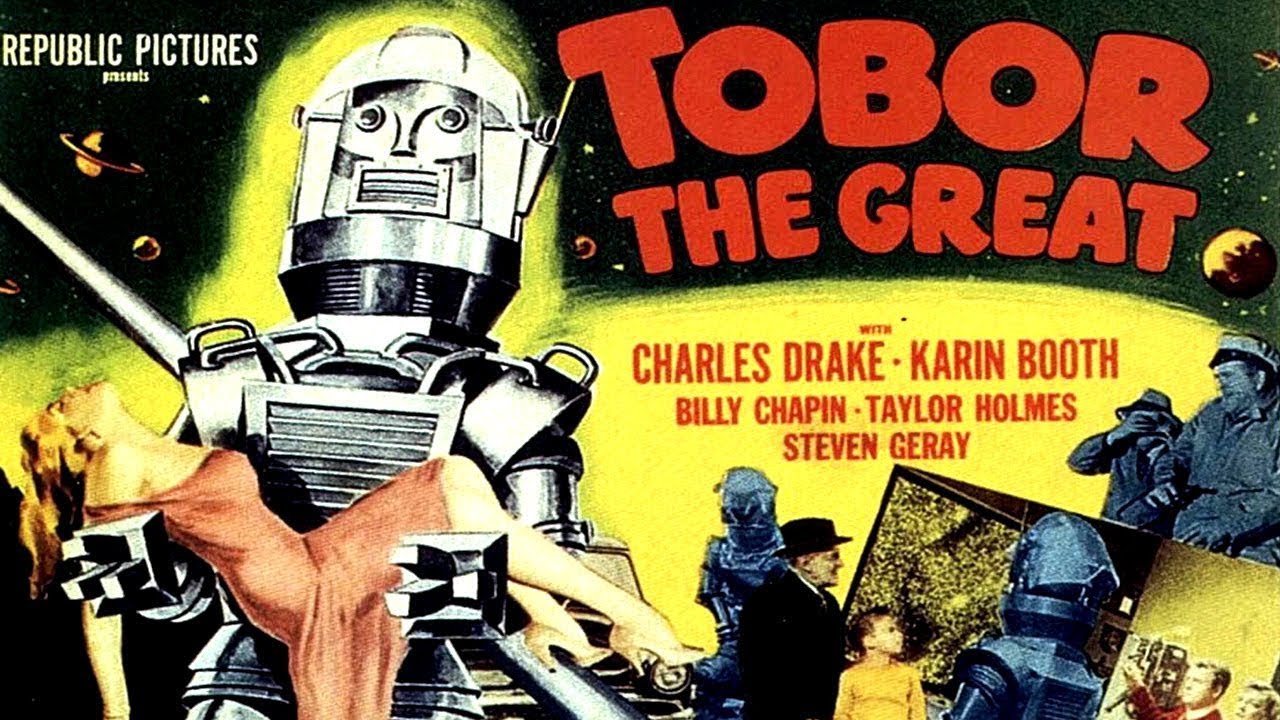
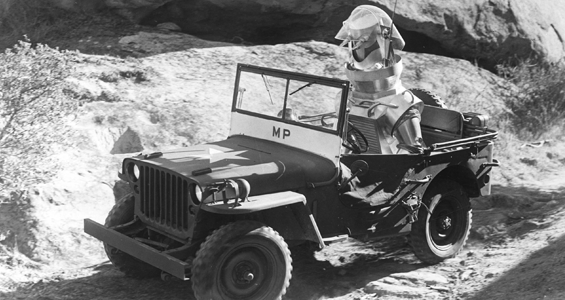
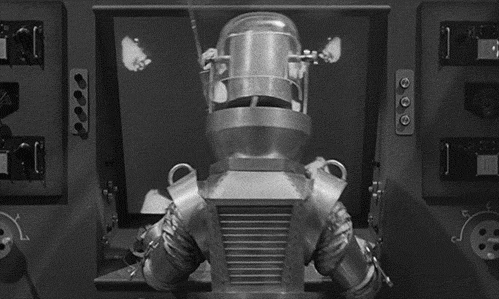
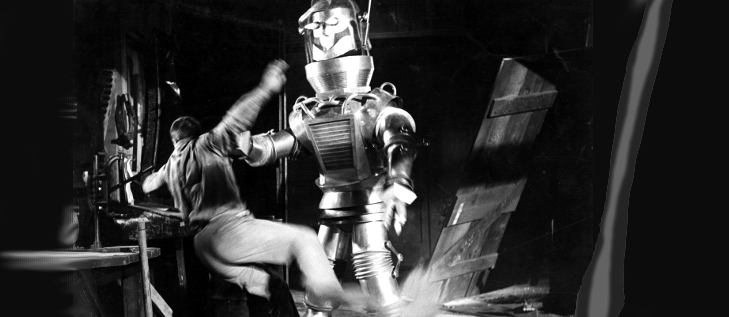
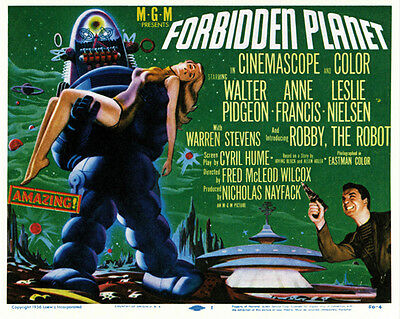
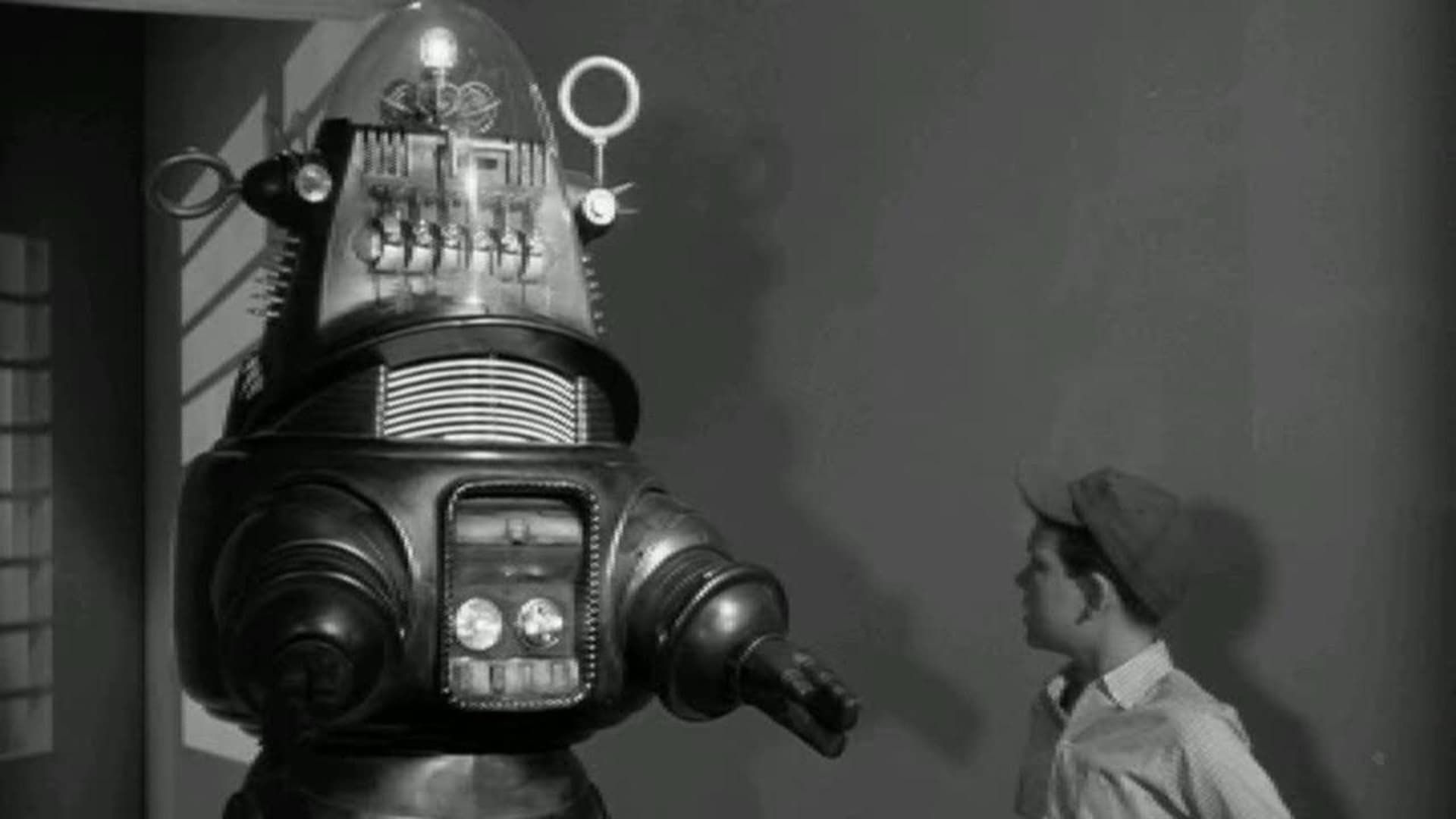

No comments:
Post a Comment